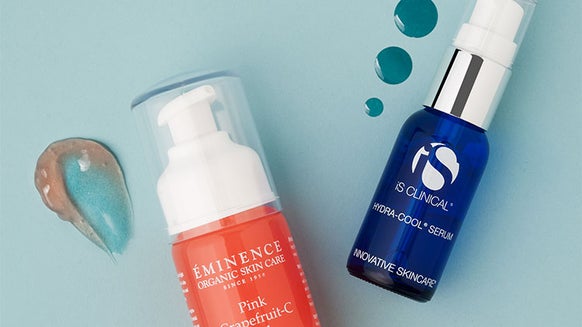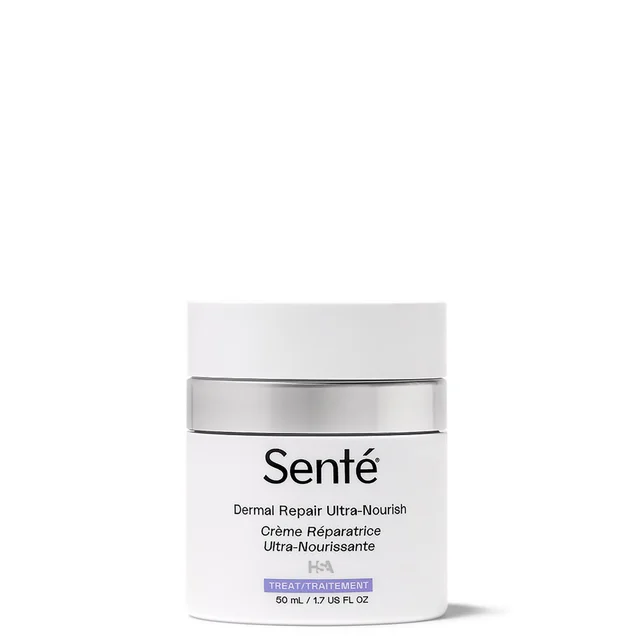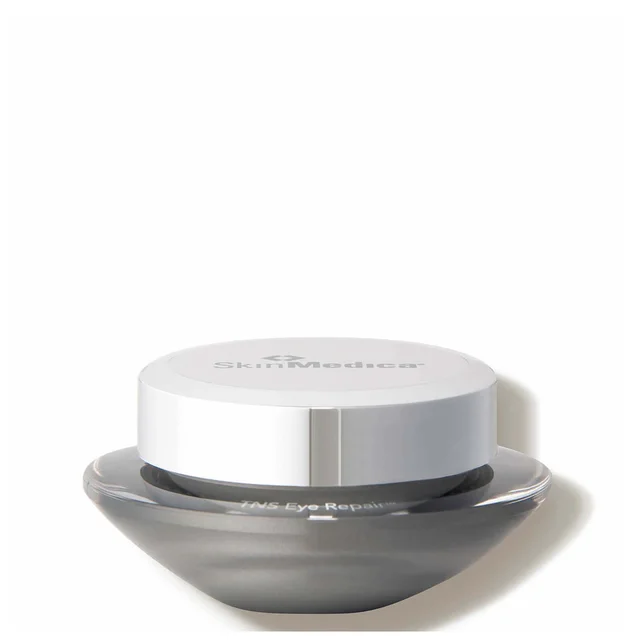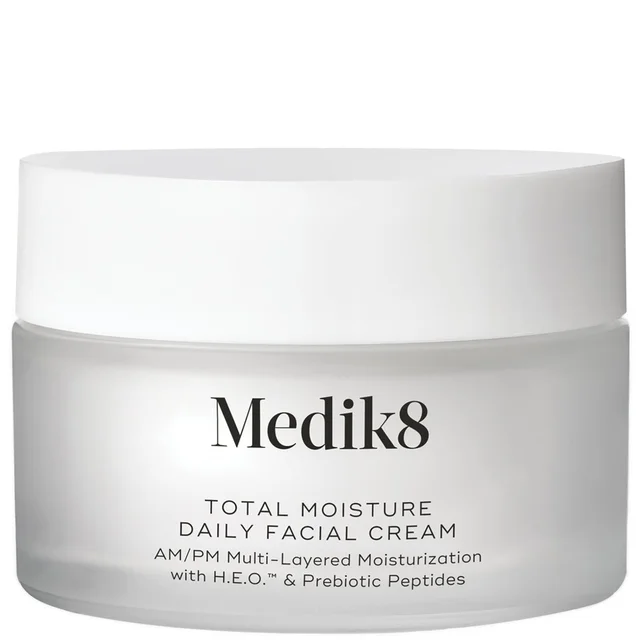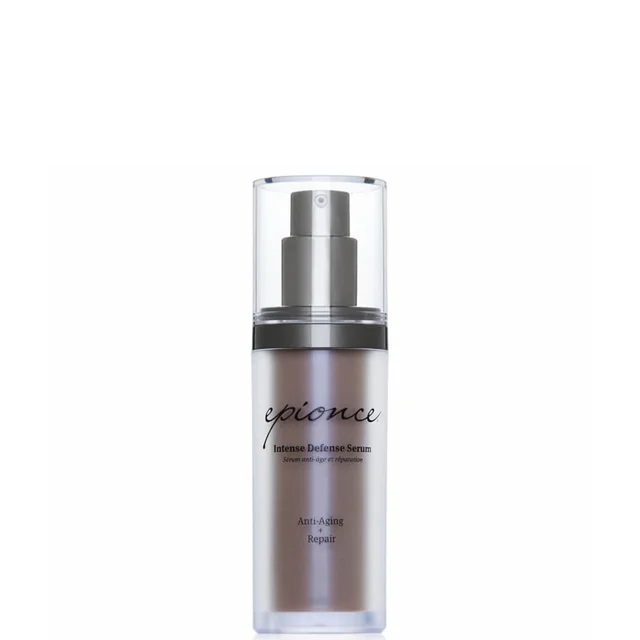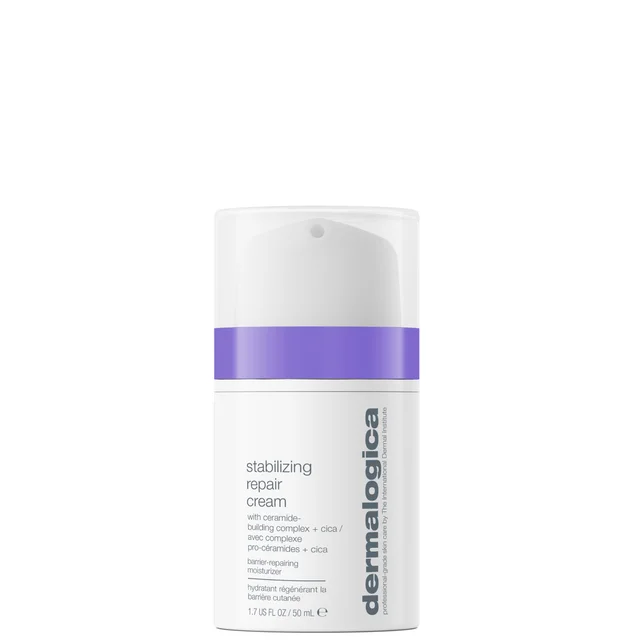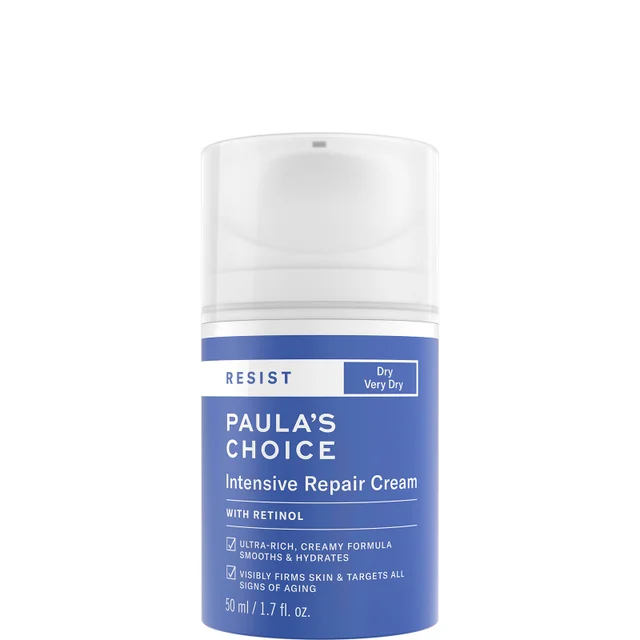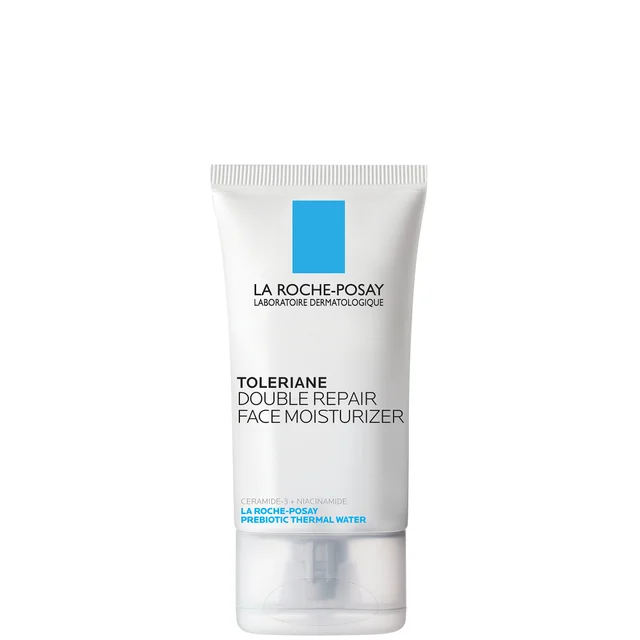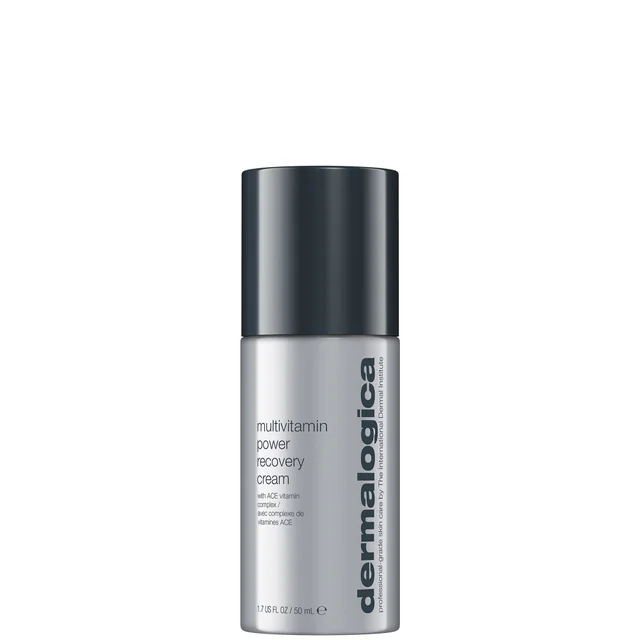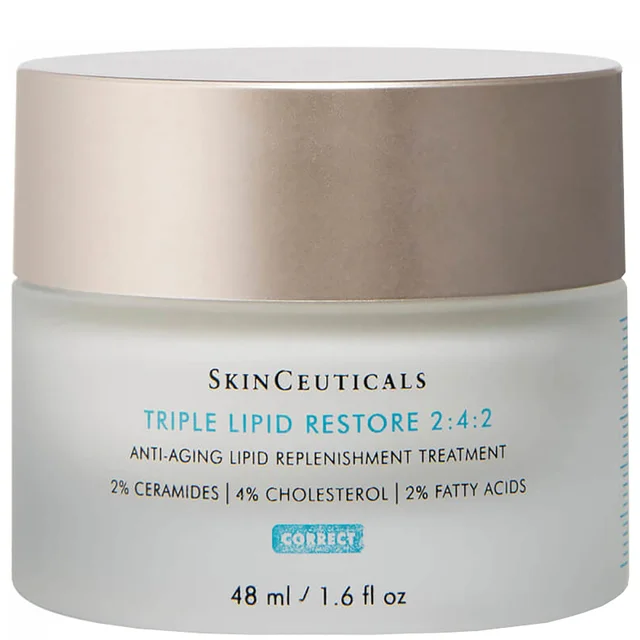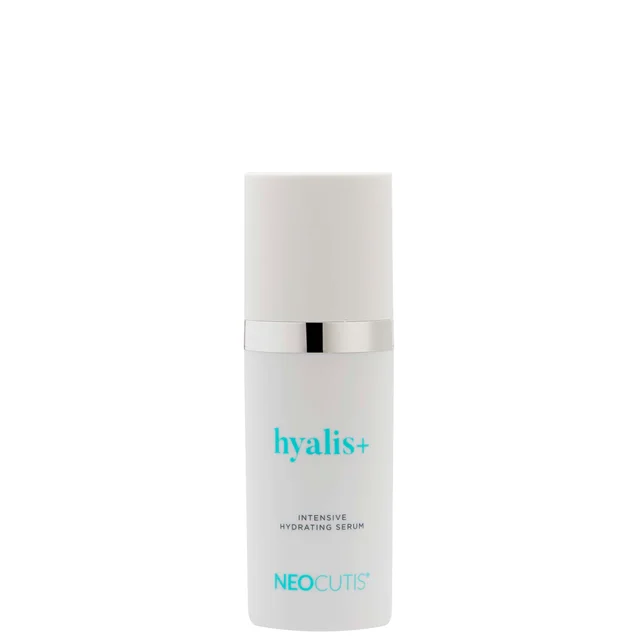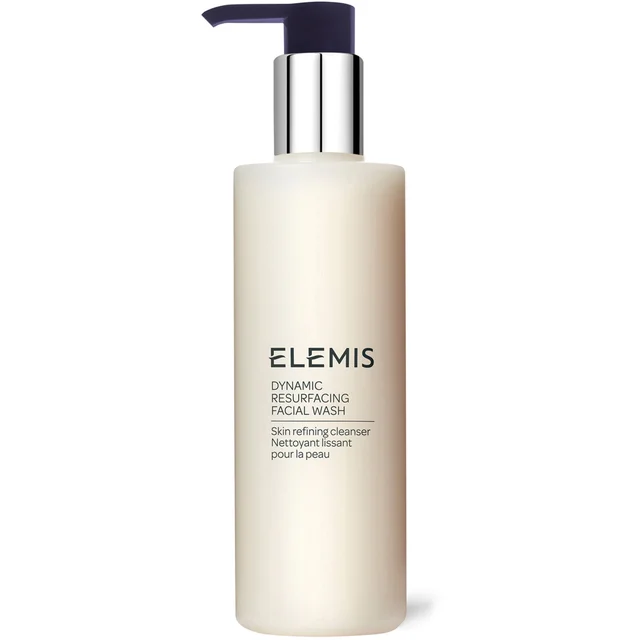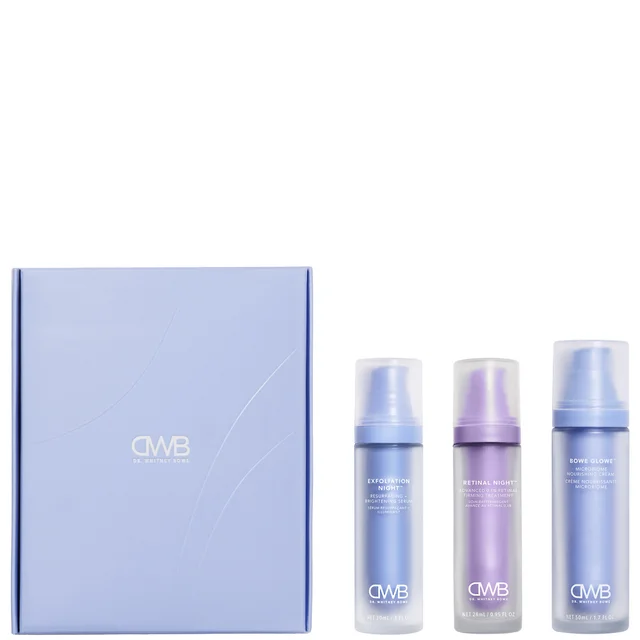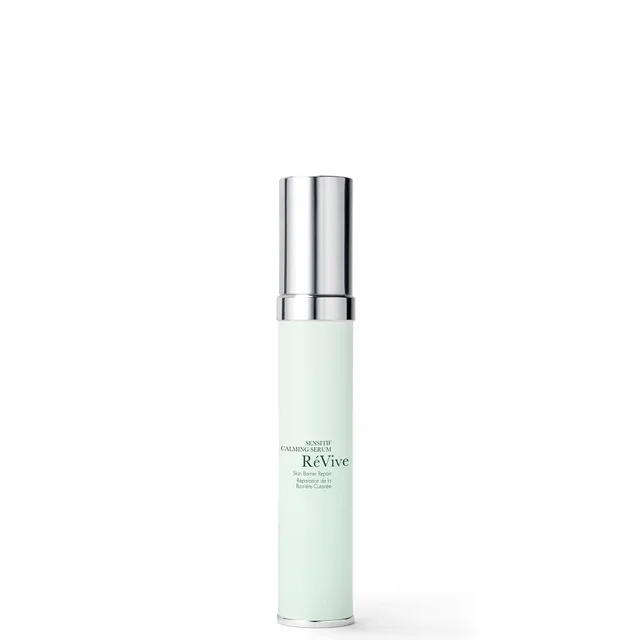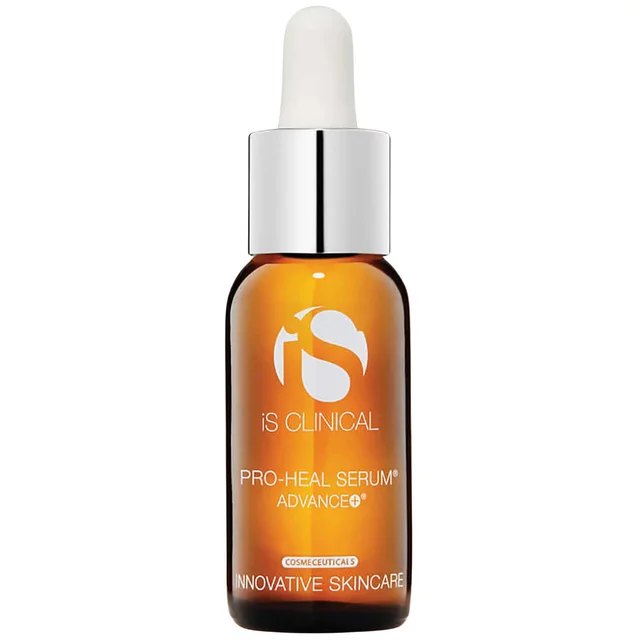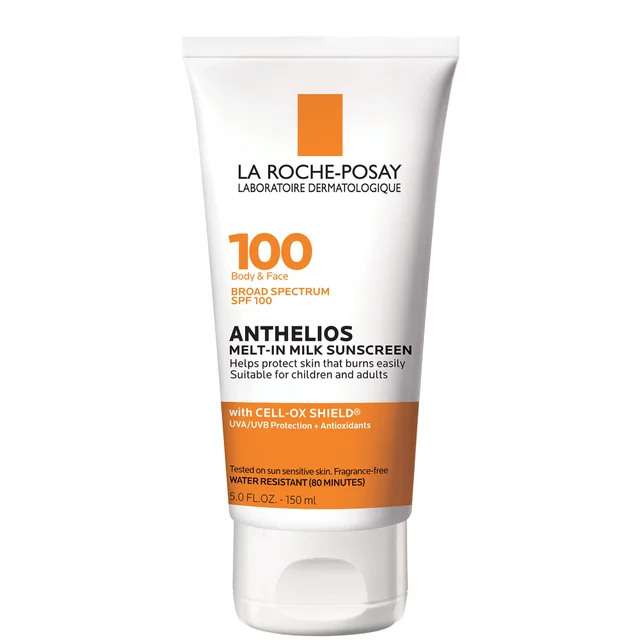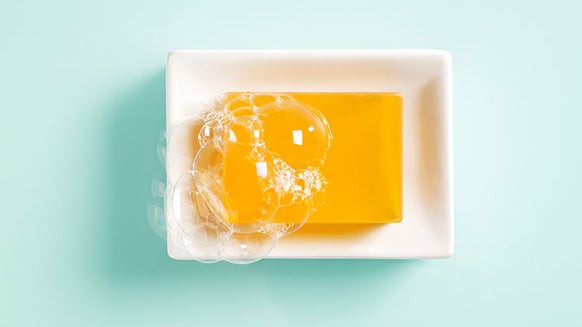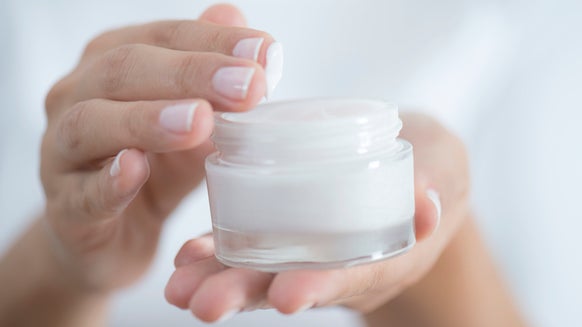10 Ways to Repair the Skin Barrier, According to a Dermatologist
We tailor our skincare routines to address our most visible skin concerns, but in many instances, we often neglect to get to the root of the problem: a damaged skin barrier. As your number one protection against everything that could harm your body—pollutants, bacteria, harsh chemicals, and other toxins—the skin barrier is not only responsible for maintaining skin health, it’s basically keeping you alive. It’s like your very own armor, and when it starts to deteriorate, it could pose a huge threat to your skin and overall health. Needless to say, making sure the skin barrier is in the best shape should always be a priority. Below, a deep dive on how to repair the skin barrier so you can give it the VIP treatment it rightfully deserves.
Meet the Expert
Dr. Whitney Bowe - board-certified dermatologist, founder of Dr. Whitney Bowe Beauty, and member of Dermstore's Medical Advisory Board
In this Article
- What is a Skin Barrier?
- Why is it Important?
- Signs of a Damaged Skin Barrier
- Causes of a Damaged Skin Barrier
- Key Ingredients to Repair the Skin Barrier
- Ways to Repair the Skin Barrier
- FAQs
- The Bottom Line
What is a Skin Barrier?
The part of the skin that we can touch and feel sensations with is called the epidermis. As the topmost layer, it contains different types of cells, which are responsible for producing melanin and keratin and launching an immune response against bacteria, viruses, and irritants that cause diseases and infections.
The skin barrier, also known as the moisture barrier, lipid barrier, or the acid mantle, refers to the outermost layer of the epidermis or the stratum corneum. “Our skin barrier is our skin’s interface with the outside world, and it works hard to protect our healthy glow,” explains board-certified dermatologist Dr. Whitney Bowe, founder of Dr. Whitney Bowe Beauty and member of Dermstore’s Medical Advisory Board.
Think of it as a tightly packed but flexible brick wall composed of skin cells or corneocytes held together by lipids—fatty compounds that act like mortar that support and maintain the structure, function, and integrity of the skin barrier. This brick wall is made up of keratin and natural moisturizers produced by the body (like cholesterol, fats, and ceramides) that help the skin “trap needed moisture in and keep irritants, pollutants, allergens, and pathogens out,” adds Dr. Bowe.
Why is the Skin Barrier Important?
The skin barrier is the skin’s primary defense system that keeps all the nasties out while keeping all the good stuff in. “We want to optimize the function of our skin barrier so that it can protect our skin against infection, dehydration, and inflammation,” Dr. Bowe shares.
Knowing how to repair the skin barrier and keep it healthy is crucial for:
- Retaining hydration and preventing transepidermal water loss (TEWL)
- Protecting against irritation and inflammation
- Keeping out pathogens and chemical irritants
Slowing down signs of aging - Regulating body temperature
- Producing an antimicrobial acid mantle
- Wound healing, skin repair, and regeneration
Signs of a Damaged Skin Barrier
What do hyperpigmentation, fine lines that suddenly become more noticeable, and inflammation all have in common? They can all be signs that your skin barrier is crying for help, says Dr. Bowe. In fact, some of the most common skin concerns you often find yourself dealing with may be due to a compromised skin barrier.
“The skin barrier plays a critical role in preventing acne and inflammation in the skin,” she explains. “Dehydrated skin can also be a sign of a damaged skin barrier. When the barrier isn’t intact, moisture evaporates out, making fine lines around the eyes and mouth look more pronounced.” But that’s not all. Inflammation caused by a weakened skin barrier can also lead to hyperpigmentation. “Sometimes, your pigment-producing cells respond to that inflammation by pumping out more pigment, leading to dark spots,” she explains.
Aside from breakouts, accentuated fine lines, and hyperpigmentation, here are other top signs your skin barrier is in dire need of extra TLC:
Dullness and Dehydration: A damaged skin barrier can make skin look and feel dry, tight, and dull because it can no longer hold moisture effectively. Redness and Inflammation: Inflammatory conditions like eczema, rosacea, and contact dermatitis can be triggered by a damaged skin barrier. Dryness or Oiliness: When your skin loses its ability to maintain proper hydration, it leads to excessive dryness, which then forces your skin to compensate by overproducing oil. Breakouts and Clogged Pores: A compromised barrier can lead to dirt, bacteria, and pollutants to settle on your face and inside your pores. Add excess oil into the mix, and your skin becomes a prime canvas for a breakout. Increased Sensitivity: If your skin starts to react strongly to skincare products (like stinging, burning, or itching) that it used to tolerate, it can be an indication that your skin barrier is weakened. Thinning: When you let the damage go unaddressed, it can make skin feel thinner and more fragile, making it more susceptible to sun damage, wrinkles, loss of firmness, sagging, and irritation. Uneven Tone and Texture: Skin with a damaged moisture barrier can feel rough, scaly, and flaky and show hyperpigmentation, blotchiness, dry patches, and other irregularities.
What Causes a Damaged Skin Barrier?
Skin barrier damage can happen to everyone, regardless of skin type, says Dr. Bowe. Exposure to ultraviolet rays, pollution, and extreme weather conditions, together with stress and poor diet, are some of the top culprits behind skin barrier damage. Sometimes, however, even doing what you think is right for your skin can result in some serious drama. As it turns out, some of the products and steps in your skincare routine may be hurting your skin barrier more than helping it. These include:
Over-cleansing: If you’re washing your face too often with harsh cleansers, you end up stripping its natural oils, leaving your skin barrier susceptible to damage. Over-exfoliation: Too much is never a good thing, same goes for exfoliation. Physical and chemical exfoliants can strip your skin and weaken the barrier when done more frequently than required or directed. Too Many Active Ingredients: When your skincare routine basically consists of everything but the kitchen sink, you risk overwhelming your skin barrier with all the active ingredients you’re using. “Note that sensitive, reactive skin can be more prone to redness and irritation from powerful actives,” Dr. Bowe warns. Harsh Ingredients: Irritating ingredients like fragrances, sulfates, alcohol, and parabens can contribute to a weakened skin barrier.
Key Ingredients to Repair the Skin Barrier
If you’re wondering how to repair the skin barrier, consider these ingredients your new best friends.
Ceramides: As a key component of the skin barrier itself, ceramides work by replenishing lost lipids and filling in the gaps in the skin barrier to prevent moisture from escaping and irritants from entering. Hyaluronic Acid: This hydration superstar draws water into the skin and helps in barrier repair by locking in hydration, replacing lost moisture, and wound healing. Niacinamide: Also known as vitamin B3, niacinamide is a hardworking multitasker is a must for barrier repair, helping to calm inflammation, improve ceramide production, and amplifying barrier function. Fatty Acids: Fatty acids replenish and restore your skin barrier’s lipid balance, improving barrier function and preventing dehydration. Colloidal Oatmeal: Known for its anti-inflammatory properties, colloidal oatmeal aids skin healing and repair and calms irritation and inflammatory skin conditions like eczema in no time. Squalane: Squalane is a lightweight oil that closely resembles the skin’s natural oils, making it a great option for quenching parched skin and hydrating the skin barrier because of how easily it’s absorbed. Glycerin: Just like hyaluronic acid, glycerin is a hydration hero that helps the skin barrier stay well-hydrated, flexible, and resilient. Panthenol (Pro-Vitamin B5): This calming and healing powerhouse is known for its ability to soothe inflammation and promote healing and repair, making it a must-have for nourishing the skin barrier.
Derm-Approved Ways to Repair the Skin Barrier
1. Cleanse Gently
A compromised skin barrier needs plenty of moisture, so the last thing you want to do is use harsh cleansers that will strip more of its natural oils. “When we cleanse, our skin should feel hydrated, smooth, and nourished–not tight, dry, and squeaky clean. That is not a sign of skin health,” reminds Dr. Bowe. Opt for gentle, hydrating, fragrance-free, and creamy formulas enriched with good-for-your-skin ingredients like ceramides, hyaluronic acid, and oats.
Featured Product: Lancer Skincare the Method: Cleanse
Best for sensitive skin, this oat-enriched daily wash gently cleanses the day away without disrupting your skin’s natural moisture barrier.
Key Ingredients: Oat Extract, Licorice Root Extract
Skin Type: Dry Skin, Mature Skin, Sensitive Skin
Skin Benefits: Gently cleanses, improves hydration, fights redness and irritation
Beauty Insider Tip: This cleanser is Step 1 of the highly acclaimed Lancer Skincare Method, a three-step skincare routine developed by Dr. Harold Lancer to enhance the skin’s natural cycle of repair and regeneration.
2. Choose the Right Formula for Your Skin Type
Knowing the good and the bad when it comes to ingredients is just the start of doing right by your skin barrier. It’s just as important to understand which of the good stuff actually works best for your specific skin type.
Dry skin needs hydration and nourishment, first and foremost, so reach for hydration-focused creamy cleansers, rich balms or moisturizers, and refreshing mists and serums. Meanwhile, oily skin types should prioritize ingredients that regulate oil production, refine pores, and restore balance, so steer clear of formulas that will add more slick to your skin. Instead, go for lightweight gel- or water-based formulas with glycolic acid and niacinamide to help control the grease and shine without damaging your skin barrier. Sensitive skin, on the other hand, requires comforting and non-irritating products, so keep your skincare simple with straightforward ingredients and fragrance-free, hypoallergenic formulas.
Featured Product: Dermalogica MultiVitamin Power Recovery Cream
Best for dry, normal, or combination skin, this daily moisturizer is packed with all barrier-repairing ingredients that treat and prevent signs of stressed and compromised skin, including dehydration, dullness, sagging, and fine lines. Infused with pro-vitamin B5, fatty acids, antioxidant vitamins, and niacinamide, it soothes, protects, and fortifies the skin barrier, ensuring skin stays visibly firm, radiant, and youthful-looking.
Key Ingredients: ACE Vitamin Complex, Pro-Vitamin B5, Niacinamide, Freshwater Microalgae, Astaxanthin, Peptides
Skin Type: Dry, Normal, Combination
Skin Benefits: Strengthens and nourishes the skin barrier, delivers immediate and long-lasting hydration, lifts and firms skin, protects from free radicals, prevents signs of aging
Beauty Insider Tip: For best results, apply morning and night over face and neck with light, upward strokes.
3. Hydrate, Hydrate, Hydrate
How to repair the skin barrier starts with giving it proper hydration. When your skin isn’t getting enough moisture, it disrupts the skin barrier’s lipid structure. It causes skin cells to shrink, leaving gaps or holes in between and making them ineffective in sealing moisture in and keeping irritants out. Excessive dryness also accelerates skin aging and makes your skin more susceptible to irritation, sensitivity, discoloration, and other tone and texture concerns.
Featured Product: EltaMD Skin Recovery Essence Toner
Like a tall drink of water for parched skin, this calming toner soothes irritation, nurtures the skin barrier, and keeps the skin pH balanced with its super hydrating formula, powered by amino acids, antioxidants, and natural moisturizing factors.
Key Ingredients: AAC Technology (amino acids), Taurine, Glycine, Ginger Root Extract
Skin Type: All Skin Types
Skin Benefits: Supports barrier repair, calms and minimizes irritation, free radical defense, refreshes and detoxifies skin
Beauty Insider Tip: Use this toner morning and night after cleansing.
4. Ceramides are Crucial
When it comes to repairing the skin barrier, ceramides are absolute musts if you want to make sure your skin’s protective barrier is always up to the task. As the glue that holds skin cells together, it’s no surprise that once natural production of these lipids dwindles, your skin starts to act up. Prevent this by incorporating ceramide-infused moisturizers, serums, and treatments in your skincare routine to make sure your skin barrier stays resilient and intact.
Featured Product: SkinCeuticals Triple Lipid Restore
By infusing the skin with pure ceramides, fatty acids, and cholesterol, this skin-reviving treatment counters the effects of a weakened skin barrier and premature signs of aging. The result? Improved facial fullness, plump and well-hydrated skin, a more glowy and youthful complexion.
Key Ingredients: Ceramides, Essential Lipids, Vitamin E, Essential Oils
Skin Type: Dry, Mature, Normal
Skin Benefits: Restores essential lipids; improves tone, texture, and elasticity; supports cell repair; protects against environmental damage
Beauty Insider Tip: Warm and melt the cream between your fingertips before applying to the skin, using circular motions, for smoother and better absorption.
5. Add Hyaluronic Acid for Intense Hydration
As you know by now, dryness is a real concern when your skin barrier is compromised. And truth be told, there really is no such thing as too much hydration when it comes to your skin. Hyaluronic acid is a powerhouse hydrator that can hold up to 1000 times its weight in water. It delivers top-to-bottom hydration for all your skin’s layers, which is super important if you want to make sure your skin barrier is getting all the nourishment it needs.
Featured Product: Neocutis HYALIS Intensive Hydrating Serum
This serum takes hydration seriously. Its advanced formula is infused with multiple forms of sodium hyaluronate, a more stable form of hyaluronic acid that penetrates and delivers hydration more effectively—thanks to its lower molecular weight that makes absorption and reaching the deeper layers of the skin a breeze.
Key Ingredients: Sodium Hyaluronate, Sodium Polyglutamate, Acetyl Glucosamine
Skin Type: All Skin Types
Skin Benefits: Hydrates intensely and promotes hyaluronic acid synthesis; relieves dryness; plumps up fine lines and wrinkles; promotes softer, smoother, and more supple skin
Beauty Insider Tip: With its nourishing and soothing formula, this serum is also great at soothing and comforting stressed and post-procedure skin.
6. Limit Exfoliation
While exfoliation is an integral part of a well-rounded skincare routine, doing it more times than you need to will cause your skin and its moisture barrier to start exhibiting signs of wear and tear. Prevent skin barrier damage by limiting your exfoliation routine to once or twice a week, depending on your tolerance, to avoid stripping and over-exfoliating your skin. And if you’re using scrubs with loofahs or buff puffs to get the job done, Dr. Bowe says those are absolute no-nos.
“Using gritty exfoliating products on your skin can actually cause inflammation and do more harm than good. Instead, opt for chemical exfoliants and only use these if the skin barrier is completely intact,” suggests Dr. Bowe. These include gentle AHAs, BHAs, and enzymes that rids your skin of impurities, debris, and excess oil while minimizing the risk of micro-tears.
Featured Product: Elemis Dynamic Resurfacing Facial Wash
This facial wash may be a cleanser, but it also provides exfoliating benefits to skin that needs gentle buffing. Infused with enzymes and antioxidants, it cleanses and polishes the skin’s surface while stimulating cell renewal, shielding the skin from environmental damage, and protecting its natural moisture barrier.
Key Ingredients: Tri-Enzyme Technology, Moringa Oil, Babassu Oil, White Truffle
Skin Type: All Skin Types
Skin Benefits: Removes dead skin cells and impurities, protects against environmental stress, supports barrier function
Beauty Insider Tip: This cleanser boasts of a foaming gel formula, making it a perfect addition to your oily skin routine.
7. Simplify Your Routine
Every skincare is unique, but when you’re coping with a compromised skin barrier—and especially if you have sensitive skin—then a less is more approach would suit you better to prevent overwhelming and overworking your skin. That’s because as much as active ingredients like retinol have the best intentions for your complexion, some skin types are less tolerant of potent actives than others. And using several strong ingredients too often can eventually weaken the skin barrier.
However, if you feel your skin needs more than just a cleanse-tone-moisturize routine, then try Skin Cyling. Developed by world-renowned dermatologist and Dermstore Medical Advisory Board member Dr. Whitney Bowe, the viral trend takes a streamlined approach to skincare with its four-night routine that focuses on treatment and recovery. Skin Cycling takes advantage of your skin’s natural repair process and hastens cell regeneration while also giving it enough time to regroup by rebalancing its microbiome and repairing the skin barrier. The best part? The routine can be easily customized to fit your needs, whether that means amping up your treatment night or adding an extra recovery time to pamper your skin barrier.
Featured Product: Dr. Whitney Bowe Beauty Skin Cycling Program – Exfoliate + Firm + Hydrate + Barrier Recovery
From the Skin Cycling originator herself, this complete Skin Cycling Program has everything you need to fight the good fight against signs of aging and complexion concerns while comforting and nourishing your skin’s natural barrier. This kit comes with all the products that fans of the program swear by: Exfoliation Night Resurfacing + Brightening Serum, Retinal Night Advanced 0.1% Retinal Firming Treatment, and Bowe Glowe Microbiome Nourishing Cream.
Key Ingredients: Retinaldehyde, Peptides, Lipids, Glycolic Acid, Lactobionic Acid, Gluconolactone, Salicylic Acid, Postbiotics, Squalane, Ceramides, Hyaluronic Acid, Prebiotics
Skin Type: All Skin Types
Skin Benefits: Brightens, firms, and nourishes; targets multiple skin concerns; delays skin aging; repairs and restores the skin barrier
Beauty Insider Tip: For Classic Skin Cycling, follow this routine: night one for exfoliation, night two for retinoids, and nights three and four for repair and recovery.
8. Add a Barrier Repair Serum
A compromised skin barrier needs all the help it can get to return to its fighting form, so you’ll want to make sure you’re giving it all the best tools to repair and restore itself. Get your hands on a barrier-focused moisturizer with ingredients like niacinamide and glycerin, known for their calming, hydrating, and barrier-supporting properties.
“On those recovery nights, when you are nourishing and restoring your skin’s barrier, you want to look for barrier-repairing ingredients like ceramides, squalane, and soothing ingredients like prebiotics,” recommends Dr. Bowe.
Featured Product: ReVive Skincare Sensitif Calming Serum Skin Barrier Repair
Ultra-restorative and super calming, this skin barrier savior works hard to nourish and rebuild the skin barrier by addressing dryness, dehydration, and signs of irritation, rebalancing the skin’s natural microbiome, and protecting the skin from blue light and environmental stressors.
Key Ingredients: Niacinamide, Bio-Renewal Peptide, Green Tea, Caffeine, Yogurt
Skin Type: All Skin Types
Skin Benefits: Instantly calms and soothes stressed skin; reduces irritation and sensitivity; restores the skin barrier; hydrates and nourishes skin; rebalances; protects from free radicals
Beauty Insider Tip: This serum is also ideal to use after professional or at-home treatments to reduce redness and irritation.
9. Protect with Antioxidants
Exposure to sunlight, pollution, and extreme weather can damage skin cells, trigger inflammation and sensitivity, cause dryness and dehydration, and disrupt the skin’s pH balance—all of which are bad news for the skin barrier. That’s why adding antioxidants to your daily skincare routine is non-negotiable. These skincare heroes protect your skin from free radicals and oxidative stress, boost your defenses against UV rays, pollution, and other environmental stressors, and target skin concerns, including premature skin aging, uneven tone and texture, hyperpigmentation, and discoloration.
Featured Product: iS Clinical Pro-Heal Serum Advance Plus
Packed with antioxidants and skin-healing vitamins and nutrients, this serum is a miracle worker for skin that’s struggling with increased sensitivity, inflammatory conditions, and environmental damage.
Key Ingredients: Vitamin C, Zinc Sulfate, Vitamin A, Vitamin E, Kojic Acid
Skin Type: All Skin Types
Skin Benefits: Treats acne, rosacea, contact dermatitis, and insect bites; promotes healing and repair; neutralizes free radicals
Beauty Insider Tip: This high-performing serum features iS Clinical’s highest levels of antioxidant protection for maximum defense and repair.
10. Wear Sunscreen Every Day
You could be using the most advanced ingredients and formulas in your skincare routine, but it all goes down the drain the moment you neglect sunscreen. Sun damage is the top cause of photoaging and skin damage, so making it a priority should be a no-brainer. That said, not all sunscreens are created equal, so when choosing one, make sure it ticks all the boxes: broad spectrum, SPF 30 or higher, sweat- and water-resistant, and free of harsh ingredients. Bonus points for formulas that go beyond sun protection and deliver skin-healing and hydrating benefits as well!
Featured Product: La Roche-Posay Anthelios Melt-in Milk Body Face Sunscreen Lotion Broad Spectrum SPF 100
Designed to soothe and protect all skin types, including skin that burns easily, this derm-trusted face and body sunscreen protects your skin completely from UV rays and free radical damage with its water-resistant, antioxidant-powered, and oxybenzone-free formula. But that’s not all. It’s also packed with nourishing and soothing ingredients that prevent your skin from drying out even in the harshest environments.
Key Ingredients: Cell-Ox shield® Technology, Vitamin E, Dimethicone, Glycerin, Vitamin B5 (Panthenol), Silica, La Roche-Posay Thermal Spring Water
Skin Type: All Skin Types
Skin Benefits: Protects from UVA/UVB rays, blends easily and leaves no white cast, water-resistant up to 80 minutes, promotes hydration and skin healing
Beauty Insider Tip: This sunscreen comes with a recommendation from the Skin Cancer Foundation and boasts of a super gentle formula that’s suitable for the most sun-sensitive, including children aged three years and up.
FAQs
How Long Does It Take to Repair the Skin Barrier?
Depending on the extent of the damage, you can expect your skin barrier to bounce back in two to four weeks. Mild issues may start seeing noticeable improvements in just a few days, while severe concerns can take longer.
Can a Damaged Skin Barrier Cause Acne?
A damaged skin barrier will have a hard time keeping toxins and pathogens off your skin and regulating oil production, making it susceptible to bacteria and pore-clogging dirt, debris, and excess oil, which can all lead to inflammation and breakouts.
What Should You Not Use When Repairing the Skin Barrier?
If you’re wondering how to repair the skin barrier, make sure to avoid skincare products with harsh ingredients, including alcohol, fragrance, and sulfates, as these can worsen sensitivity, dry out the skin, and trigger irritation. If you’re using heavy-hitting active ingredients like retinoids, dial down the dose and frequency to give your skin barrier time to recover. You can also switch to a milder version or a plant-based alternative like bakuchiol.
Can Retinol Damage the Skin Barrier
damage if you’re not using it the right way. Applying too much retinol too often, combining it with ingredients that it shouldn’t be paired with, and introducing a higher dose before your skin is ready can impair the skin barrier. The trick to using retinol safely is to exercise patience and take things slow. “One golden rule for any skin types is to integrate new actives into your routine slowly, allowing your skin barrier an opportunity to adjust before building up and adding new actives,” explains Dr. Bowe.
This is especially true for a workhorse ingredient like retinol, so start with a low dose and gradually increase as your skin develops tolerance. Remember to pair it with a barrier-repairing cream and pay close attention to how your skin reacts to the ingredient. “If you experience signs of a compromised skin barrier, your skin needs to recover. Take a break from your powerful actives like retinoids and exfoliating serums, and instead, focus on gentle, nourishing products,” adds Dr. Bowe.
The Bottom Line
The skin barrier is responsible for mounting a chemical and physical defense against environmental damage, bacteria, toxins, and other pathogens that could harm your skin and overall health. But because of the constant beating it endures from external stressors and certain skincare practices that do more damage than good, your skin barrier starts to suffer. The good news is, more and more products are designed with barrier health and repair in mind, making it easier to address the telltale signs of damage while directly targeting the cause. So, if you want to know how to repair the skin barrier, start by including restorative and hydrating ingredients—like hyaluronic acid, niacinamide, antioxidants, and ceramides—to your skincare repertoire and make sure to follow a gentle routine that focuses on promoting recovery and nourishing your skin.

Janeca Racho is a Journalism graduate with over 15 years of writing experience. After getting her start in public relations and advertising, she made the switch to freelance writing and began working for various lifestyle, fashion, and travel brands. Her love for all things skincare has led her to beauty reporting and research for the last ten years. Writing for several hair and beauty blogs, she reports on anti-aging staples, trending brands and products, must-have ingredients, and health and wellness.
Related Posts

How to Exfoliate Your Scalp for Healthier Hair, According to a Beauty Expert
